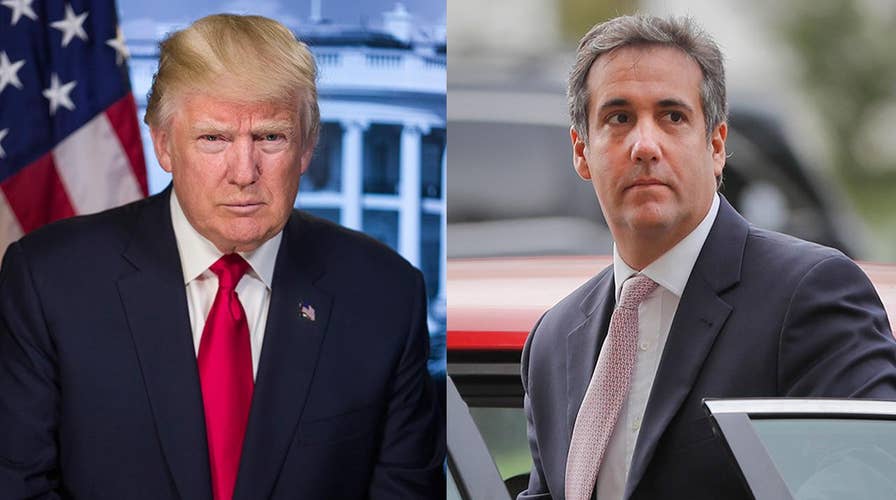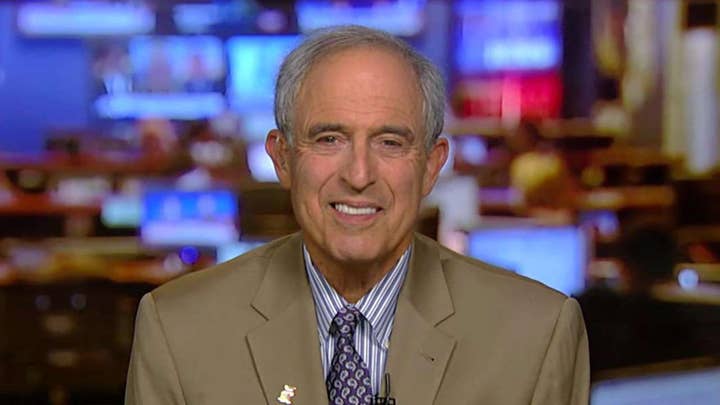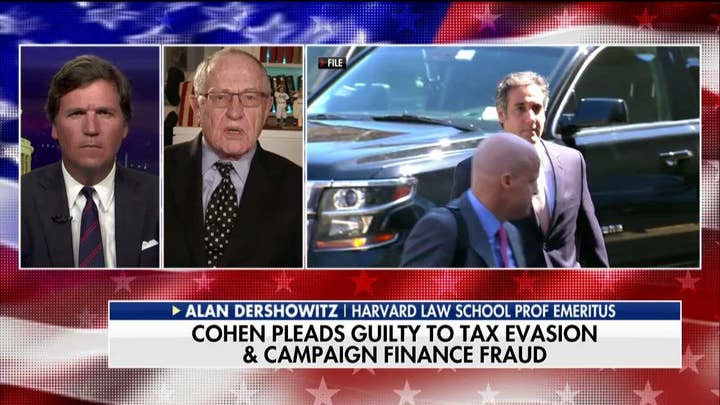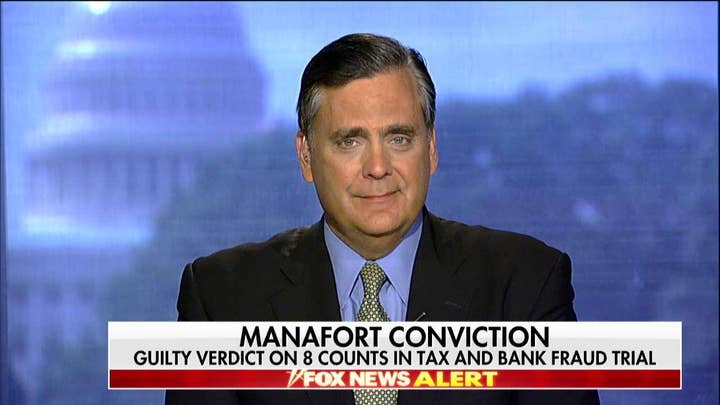Michael Cohen’s guilty plea: What does it mean for Trump?
President Trump’s long time personal lawyer pleads guilty and admits to arranging hush money payments to Stormy Daniels and former Playboy model Karen McDougal 'at the direction' of then-candidate Trump. What does this mean for Trump?
Michael Cohen's plea deal chucked a live political grenade into the debate over President Trump's legal exposure – but that debate is far from settled, as experts clash over whether his implication of the president in campaign finance violations will amount to anything.
The president’s former longtime personal attorney and self-described “fixer” entered a guilty plea with federal prosecutors on Tuesday, admitting to violating campaign finance laws by arranging hush money payments to adult film star Stormy Daniels and former Playboy model Karen McDougal “at the direction” of then-candidate Trump.
Trump, though, claimed the move to pay off the two women was not a crime -- while suggesting such allegations can be settled by fine.
“Michael Cohen plead guilty to two counts of campaign finance violations that are not a crime. Obama had a big campaign finance violation and it was easily settled!” Trump tweeted Wednesday morning.
Trump was referring to former President Barack Obama’s 2008 campaign, which was fined $375,000 by the Federal Election Commission for a series of missing notices for more than 1,300 contributions. They totaled $1.8 million.
But Lanny Davis, Cohen’s attorney, argued there is little room for interpretation here.
“There is no question that he’s committed a federal crime,” Davis told Fox News' “America’s Newsroom” on Wednesday. He also argued that it's never been settled whether a sitting president can be indicted, despite suggestions to the contrary from Trump allies.
Davis added that his client, under oath on Tuesday, admitted to making the “donations to keep quiet two women” at Trump's direction.
At issue is a $130,000 hush money payment made by Cohen to Daniels in the weeks leading up to the presidential election in exchange for her silence about an alleged affair with Trump, and the McDougal case, where she was paid $150,000 by the parent company of the National Enquirer for her story about an alleged 2006 affair with Trump, which it never published. Cohen admitted Tuesday to making an excessive campaign contribution and causing an unlawful corporate contribution.
“Mr. Trump wasn’t willing to sign those checks himself. He directed Mr. Cohen to make those hush money payments, [which is] a federal crime,” Davis said. “If Michael Cohen agreed to that, then certainly Donald Trump is guilty of the same crime.”
But former commissioner at the Federal Election Commission, Hans von Spakovsky, said that Cohen’s decision to plead guilty does not necessarily mean Trump violated the law.
“This is not a violation because this was not a campaign-related offense,” Spakovsky told Fox News on Wednesday. “Yes, Cohen pleaded guilty to it, yeah Cohen paid it, but then Cohen was reimbursed by Trump.”
The plea deal states that the payments were in fact meant to influence the election, though that could be argued by Trump's lawyers if it ever came to that. Spakovsky said Trump had a history of making these kinds of payments before he was a candidate.
Further, Spakovsky said "a candidate can spend as much of their own money as they want to—even if it was a campaign-related expense.”
Harvard Law professor emeritus Alan Dershowitz, a frequent defender of the president, made a similar argument.
“You have to show that it’s a crime,” he told “Fox & Friends.” He said it’s “not a crime” for a candidate like Trump to contribute to his own campaign, and probably not even a crime to direct someone else to contribute if he plans to pay that back.
Further, Dershowitz said, “The only evidence that the president did anything that might be unlawful … comes from a man who’s admitted to be a liar.”
“There are a lot of barriers,” he said, “We’re far away from [an] impeachable offense or a criminal offense on the part of the president.”
Richard Painter, former White House chief ethics counsel under former President George W. Bush, said that while Cohen’s guilty plea gives Trump “exposure” to criminal prosecution, these types of cases “can be difficult to win.”
Painter, who ran unsuccessfully as a Democrat for U.S. Senate in Minnesota this month, cited the case of former vice presidential nominee John Edwards as “precedent.” Edwards was indicted in 2011 on charges of using illegal campaign donations to conceal an extra-marital affair to prevent his run for the White House from capsizing. Edwards, ultimately, was acquitted on one count and the jury deadlocked on others.
“It is not entirely clear how these cases turn out, as we found out with Edwards,” Painter told Fox News. He added, though, that he felt the Cohen-Trump payments were “more serious” than former President Bill Clinton lying about Monica Lewinsky, as "campaign finance is more important to our democracy than the president lying under oath in a civil case."
Painter added that while there is “potential criminal liability,” it is “not cut and dry.” He suggested Trump's problems go beyond Cohen.
“If you had a president with no other legal problems, who just had the Cohen problem, I would say the outcome of a criminal trial for Trump, based on that alone, is a maybe, maybe not situation,” Painter explained. “But Trump’s problem is not just this. He has the whole Russia thing. He has two big problems. One, is what his own involvement or knowledge of collusion was, and the second, where he has much more exposure, and is digging his own grave, is obstruction of justice.”
Trump has denied any collusion with Russia in the election and continues to call the special counsel probe a witch hunt.
Professor of law at George Washington University Jonathan Turley, though, said Trump could end up an "unindicted co-conspirator" in the Cohen matter.
On Wednesday, he agreed that the Cohen plea alone would not make “a particularly strong case,” but suggested there's more to come.
“You have the president’s lawyer implicating him in a federal crime. How Trump responds to that is going to be very key,” Turley said on “America’s Newsroom” Wednesday. “But the Justice Department certifies that they believe these allegations are accurate. That should be quite chilling, because this isn’t some immaculate crime committed by Cohen alone.”
Turley said that federal prosecutors, now, will likely pursue other “collateral or central players.”




























